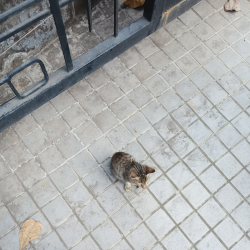1. Avoid smoking.
Tobacco use contributes to NCDs such as lung disease, heart disease, and stroke. Tobacco kills not only direct smokers, but also nonsmokers via second-hand smoke. Currently, approximately 15.9 million Filipino adults smoke tobacco, but 7 out of 10 smokers are interested in or plan to quit.
If you are a smoker, it is not too late to quit. When you do, you will notice both immediate and long-term health benefits. That's fantastic if you don't smoke! Do not start smoking in order to fight for the right to breathe tobacco-free air.
2. Be involved
Physical activity is defined as any skeletal muscle movement that requires energy expenditure. This includes exercise and activities done while working, playing, doing housework, travelling, and engaging in recreational activities. The amount of physical activity required varies by age group, but adults aged 18 to 64 years should engage in at least 150 minutes of moderate-intensity physical activity per week. To reap additional health benefits, increase moderate-intensity physical activity to 300 minutes per week.
3. Check your blood pressure on a regular basis.
Hypertension, also known as high blood pressure, is known as a "silent killer." This is because many people with hypertension are unaware of the problem because it has no symptoms. Hypertension, if not controlled, can lead to heart, brain, kidney, and other diseases. Have your blood pressure checked by a health professional on a regular basis so you know what your numbers are. Consult a health professional if your blood pressure is too high. This is critical for hypertension prevention and management.
4. Take a test
Getting tested is an important step in determining your health status, particularly for HIV, hepatitis B, sexually transmitted infections (STIs), and tuberculosis (TB). These diseases, if left untreated, can cause serious complications and even death. Knowing your status means you'll be able to continue preventing these diseases or, if you're positive, get the care and treatment you require. Take yourself to a public or private health facility, whichever is most convenient for you, to be tested.
5. Obtain a vaccination
Vaccination is one of the most effective methods of disease prevention. Vaccines work in conjunction with your body's natural defences to protect you from diseases such as cervical cancer, cholera, diphtheria, hepatitis B, influenza, measles, mumps, pneumonia, polio, rabies, rubella, tetanus, typhoid, and yellow fever.
As part of the Department of Health's routine immunisation programme, free vaccines are given to children aged one and under in the Philippines. If you are an adolescent or adult, you can ask your doctor if you should check your immunisation status or get vaccinated.










